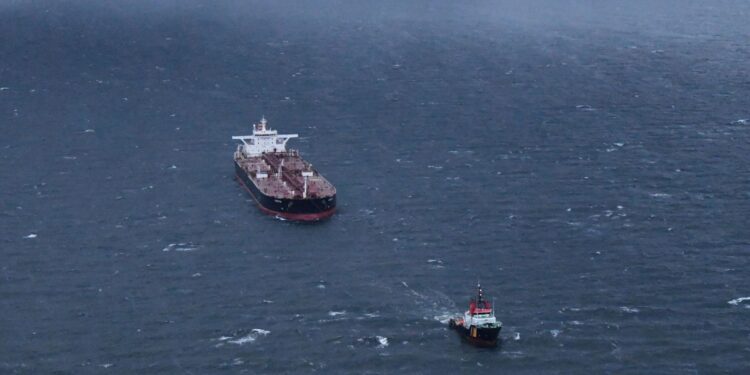Bloomberg said in a recent report that Russia, Iran and Venezuela are continuing to export oil in large quantities despite the strict sanctions imposed by Western countries. These countries, which produce about 16 million barrels per day, often sell their oil with discounts of up to 20% of market prices, which generates revenues estimated at one billion dollars per day, which is an amount that makes the black oil market one of the most unlawful industries in the world.
Challenges to sanctions
The report indicates that the sanctions aimed at preventing these countries from exporting oil have failed to achieve concrete results. While Western governments pledge to tighten the procedures, these measures have only succeeded in slowing the illegal trade and increasing the cost to the mediators.
However, oil flow continues, as sellers resort to providing larger discounts to attract buyers, especially in markets that are not considered Iranian or Russian oil illegal, such as China and India, according to Bloomberg.
https://www.youtube.com/watch?v=mceg7qpvqds
Javier Palace, the author of the report, pointed out that “the black oil market benefits from the weakness of the political will of the Western countries to bear the high oil prices resulting from the imposition of stricter sanctions.”
He added that “the illegal trade continues because the financial returns are huge, and the concerned authorities are always ready to find new ways to circumvent the restrictions.”
Indirect support for the black market
According to Bloomberg, there is a clear contradiction in the approach of Western countries towards the application of sanctions. On the one hand, governments insist on imposing strict sanctions, and on the other hand, they seek to maintain the stability of global oil prices.
This double approach – according to Bloomberg – allows the black market to prosper, especially since the major countries like China and India are not ready to support sanctions that may lead to a significant increase in energy prices.
Iran and Russia .. vivid examples of adaptation
The agency states that Iran, for example, managed to increase its oil production to about 4.5 million barrels per day in 2024, the third highest level since 1978.
Iran relies on a fleet of more than 500 oil tankers to transfer its production, making it difficult for US sanctions to stop its full flows. So far, more than 60% of these tankers are still not subject to penalties.
As for Russia, despite the sanctions imposed on it after the invasion of Ukraine, it managed to adapt quickly. Moscow is forced to sell oil at low prices and bear higher costs to transport it, but it has found solutions to overcome obstacles, including the use of oil tankers as floating stores while searching for buyers.
The report confirms that Russia was able to reorganize its exports in less than a month, which highlights its flexibility and its ability to adapt.
https://www.youtube.com/watch?v=dx1g2RRRSNEC
A mysterious future for sanctions
The report shows that the West’s ability to impose effective sanctions depends largely on its willingness to bear the high oil prices, which seems difficult to achieve in light of the current economic and political conditions. Also, persuading countries like China and India to support these sanctions remains a major challenge.
The report indicates that the black oil market will not stop as long as Western governments are not ready to take more powerful measures and pay the economic price resulting. For Russia, Iran and Venezuela, huge financial returns make the risk worth it, ensuring the continued flow of oil to the global market.
Miraculous
However, Reuters reported yesterday from commercial sources and analysts as saying that the amount of Russian and Iranian oil loaded on tankers reached the highest level in several months, with the number of buyers decreased due to the tightening of US sanctions, which reduces the number of tankers available to deliver shipments and raise crude costs.
The report stated that the amount of Iranian oil in the floating storage has increased between 10 million and 20 million barrels since the beginning of this year, with the rise in exports and the decline in shipments to China.
Reuters quotes Emma Li, the analyst at Fortaxa Analytics, to track the tankers that the amount of Iranian crude oil and condensate in the floating storage amounted to 73.1 million barrels at the end of January.
According to Reuters, Kepler data showed that Russian crude oil charged by sea and was not unloaded after a record of the highest level in two months at 88 million barrels on January 27, which is 24% over its level on January 10 at the announcement of Penalties.



